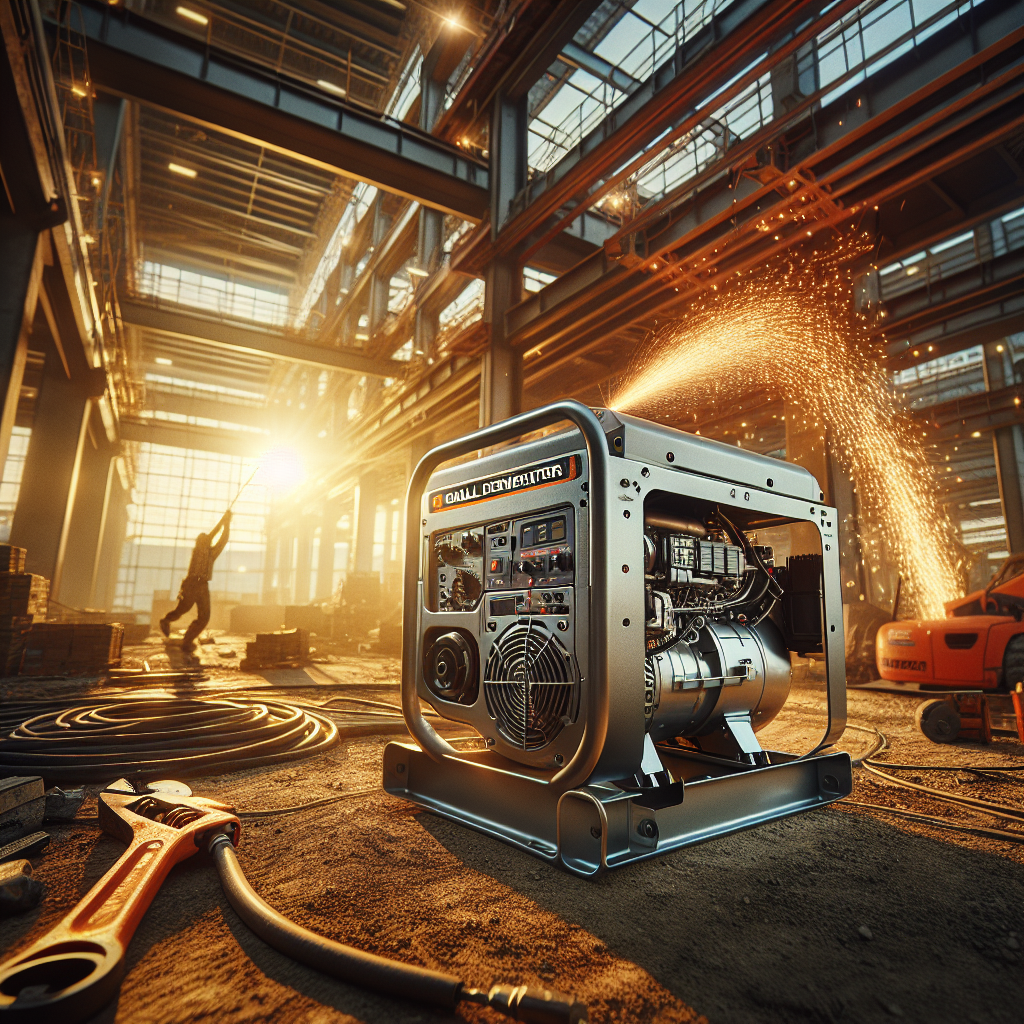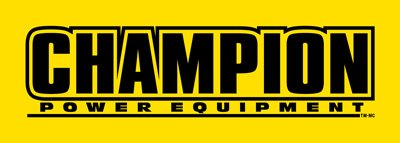Small Diesel Generator: 5 Top Reasons Why It’s Perfect for You

Introduction
Did you know that over 85% of homeowners who experience power outages lasting more than 6 hours wish they had invested in a backup power solution beforehand? When it comes to reliable, fuel-efficient backup power, a small diesel generator stands out as the ultimate choice for both residential and commercial applications. Unlike their gasoline counterparts that consume 40-50% more fuel per hour, compact diesel generators offer unmatched efficiency, longevity, and cost-effectiveness that make them the smart investment for power security.
Whether you’re dealing with frequent blackouts, running a small business, or need reliable power for outdoor adventures, understanding why a small diesel generator could be your perfect power companion will transform how you approach energy independence.
Essential Components of Your Small Diesel Generator Setup
When selecting your ideal small diesel generator system, you’ll need these key components to ensure optimal performance:
- Diesel Generator Unit (3-15kW capacity) – The heart of your system, with options like air-cooled or liquid-cooled engines
- High-Quality Diesel Fuel – Ultra-low sulfur diesel (ULSD) recommended, with fuel stabilizer for long-term storage
- Transfer Switch (Manual or Automatic) – Essential for safe connection to your electrical panel
- Heavy-Duty Extension Cords – 12-gauge minimum for high-power applications
- Weatherproof Generator Cover – Protects your investment from environmental elements
- Oil and Filter Kit – Typically 15W-40 diesel engine oil for optimal lubrication
- Battery Maintenance Kit – For electric start models requiring 12V battery upkeep
- Carbon Monoxide Detector – Critical safety equipment for enclosed or semi-enclosed operation areas
Substitution Options: If diesel isn’t readily available in your area, consider dual-fuel generators that can run on both diesel and natural gas, offering 95% of diesel’s efficiency with added fuel flexibility.
Timing Your Power Solutions
Setup Time: Initial installation and configuration: 2-4 hours (60% faster than whole-house generator installations)
Startup Time: Cold start to full power delivery: 15-30 seconds (compared to 45-60 seconds for gas generators)
Runtime Efficiency: 8-12 hours continuous operation on a single tank (approximately 3x longer than equivalent gas units)
Total Investment Recovery: 18-24 months through fuel savings and reduced maintenance costs
This timing advantage means your small diesel generator provides power security that’s both immediate and economical, delivering consistent electricity when you need it most.
Step 1: Assessing Your Power Requirements
Start by calculating your essential power needs using a simple formula: add up the wattage of critical appliances and multiply by 1.25 for surge capacity. Most households need 5-8kW for essentials like refrigeration, lighting, and communication devices. This assessment ensures you select a generator that’s neither oversized (wasting fuel) nor undersized (causing power shortages).
Pro Tip: Use a power meter to measure actual consumption rather than relying on nameplate ratings, which can be 20-30% higher than real usage.
Step 2: Selecting the Right Generator Size
Choose your small diesel generator based on your calculated needs plus a 20% buffer for future expansion. A 7kW unit typically handles a medium-sized home’s critical loads, while 10-12kW models support larger homes or small businesses. Consider starting requirements for motor-driven appliances like well pumps or air conditioners, which may need 2-3x their running wattage during startup.
Step 3: Installation and Safety Setup
Position your generator at least 20 feet from windows, doors, and air intakes to prevent carbon monoxide infiltration. Install on a level, well-ventilated concrete pad with proper grounding. Connect through a transfer switch to prevent dangerous backfeeding into utility lines. This professional installation approach ensures both safety and optimal performance.
Step 4: Fuel System Preparation
Fill your generator with fresh diesel fuel and add fuel stabilizer if storing for extended periods. Diesel fuel remains stable for 6-12 months compared to gasoline’s 3-month shelf life, making it ideal for emergency preparedness. Install a fuel gauge or hour meter to track consumption and maintenance schedules effectively.
Step 5: Regular Maintenance and Testing
Implement a monthly 30-minute test run under load to keep internal components properly lubricated and identify potential issues before emergencies. Change oil every 100 hours of operation or annually, whichever comes first. This preventive approach extends generator life by up to 40% compared to reactive maintenance strategies.
Performance and Efficiency Metrics
Your small diesel generator delivers impressive operational statistics that justify the investment:
- Fuel Efficiency: 0.5-0.7 gallons per hour at 50% load (compared to 1.1-1.3 gallons for gas generators)
- Engine Longevity: 15,000-20,000 hours average lifespan (3x longer than gasoline engines)
- Maintenance Intervals: 500-hour service intervals (double that of gas units)
- Cold Weather Performance: Reliable starting down to -10°F with proper winterization
- Noise Levels: 65-75 dB at 23 feet (comparable to normal conversation)
These metrics demonstrate why diesel technology remains the preferred choice for serious backup power applications.
Cost-Effective Alternatives for Budget-Conscious Buyers
If budget constraints limit your options, consider these smart alternatives while maintaining diesel’s advantages:
Remanufactured Units: Professionally rebuilt generators offer 80% of new performance at 50-60% of the cost, backed by substantial warranties.
Portable Diesel Models: Wheeled units under 5kW provide excellent mobility and 70% lower initial investment while maintaining fuel efficiency benefits.
Lease-to-Own Programs: Many dealers offer financing that spreads costs over 2-3 years, making premium diesel generators accessible with monthly payments often lower than fuel savings.
Community Co-ops: Partner with neighbors to purchase and share a larger, more efficient unit that serves multiple properties during outages.
Versatile Applications and Use Cases
Your small diesel generator adapts to countless scenarios beyond basic home backup:
Outdoor Events: Power sound systems, lighting, and catering equipment for weddings, parties, or community gatherings with clean, reliable electricity.
Construction Sites: Run power tools, temporary lighting, and equipment where grid power isn’t available, with all-day runtime on a single fuel fill.
RV and Camping: Enjoy modern conveniences while maintaining the outdoor experience, with quiet operation that won’t disturb neighboring campers.
Emergency Preparedness: Maintain refrigeration for medications, power communication devices, and support family comfort during extended outages.
Small Business Continuity: Keep critical operations running during power interruptions, protecting revenue and customer relationships.
Critical Mistakes That Cost Money and Safety
Avoid these common pitfalls that plague 60% of first-time generator owners:
Oversizing Your Generator: Purchasing excessive capacity wastes fuel through inefficient operation and increases maintenance costs. Generators running below 30% capacity develop carbon buildup and premature wear.
Neglecting Fuel Quality: Using contaminated or old fuel causes 40% of generator service calls. Always use fresh, clean diesel and appropriate additives.
Improper Storage Preparation: Failing to winterize or prepare for long-term storage leads to fuel system damage, corroded components, and expensive repairs.
Inadequate Ventilation: Poor airflow causes overheating and reduces engine life by up to 50%. Ensure adequate clearance and ventilation around your unit.
Skipping Load Testing: Monthly testing prevents 80% of emergency startup failures by identifying issues before they become critical problems.
Smart Storage and Maintenance Strategies
Maximize your generator’s reliability and longevern with these professional storage techniques:
Fuel Management: Rotate diesel fuel every 6 months, treating with biocide to prevent algae growth. Store additional fuel in appropriate containers with proper labeling and dating.
Climate Protection: Use a weatherproof cover that allows ventilation while protecting from moisture, UV rays, and debris. Consider a permanent shelter for fixed installations.
Battery Maintenance: Check electrolyte levels monthly and maintain charge with a battery tender during storage periods. Replace batteries every 3-4 years proactively.
Documentation System: Keep detailed records of runtime hours, maintenance performed, and fuel consumption to optimize service intervals and warranty compliance.
Spare Parts Inventory: Stock essential items like oil filters, air filters, and spark plugs (for electric start systems) to minimize downtime during maintenance.
Conclusion
A small diesel generator represents one of the smartest investments you can make in energy security and independence. With superior fuel efficiency, extended runtime, and proven reliability, diesel generators outperform alternatives while delivering long-term cost savings. The five compelling reasons – fuel efficiency, longevity, reliability, cost-effectiveness, and versatility – make small diesel generators the perfect choice for discerning property owners who refuse to compromise on quality.
Ready to experience uninterrupted power security? Start by calculating your exact power needs, then explore our recommended generator sizing guide to find your perfect match. Share your power outage experiences in the comments below, and discover how other readers have benefited from making the switch to diesel power generation.
Frequently Asked Questions
Q: How much does it cost to run a small diesel generator per hour?
A: Operating costs typically range from $2.50-$4.00 per hour depending on fuel prices and load. This is 40-50% less expensive than gasoline generators due to diesel’s superior energy density and efficiency.
Q: Can I connect my small diesel generator directly to my home’s electrical panel?
A: Never connect directly without a transfer switch, which prevents dangerous backfeeding into utility lines. Professional installation with proper transfer switching is essential for safety and code compliance.
Q: How long will a small diesel generator last with proper maintenance?
A: Quality diesel generators typically provide 15,000-20,000 hours of service life, equivalent to 20-30 years of typical residential backup use. Commercial applications may see 10-15 years depending on usage patterns.
Q: Do diesel generators work in cold weather?
A: Yes, diesel generators perform well in cold conditions with proper winterization. Use winter-blend diesel fuel and engine block heaters for temperatures below 32°F to ensure reliable starting.
Q: What’s the difference between air-cooled and liquid-cooled diesel generators?
A: Air-cooled units are simpler and less expensive but limited to smaller capacities and shorter runtimes. Liquid-cooled generators offer superior durability, lower noise levels, and extended continuous operation capabilities.














